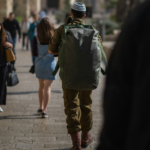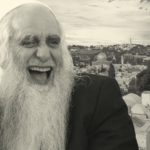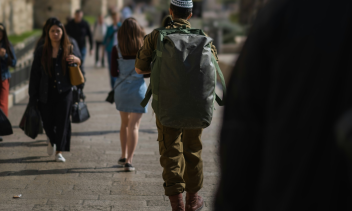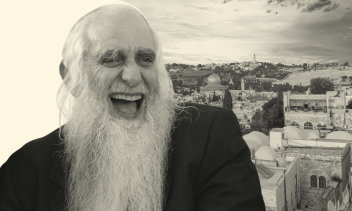If you grew up reading English-language coverage of Israel, you know Matti Friedman. You may not know you know Matti, but you have read one of his pieces in the New York Times, Tablet, The Atlantic, Smithsonian, or anywhere else.
Coverage of Israel tends to extremes, and even attempts at being even can tend to be even in extremes; we’ve all seen headlines that seem to revel in the passive voice when reporting a terror attack. Unlike much contemporary coverage of the Palestinian-Israeli conflict, Matti’s coverage is always even in tone; he doesn’t catastrophize, criticize one camp alone, or speak without thinking.
In fact, many of his most compelling pieces on the conflict aren’t about the conflict at all, but about how we think of the conflict, the stories we tell, and the ways the media navigates telling the story of this holy land.
He has written three books, all of which have been nominated and awarded many prestigious awards and prizes: Who By Fire: Leonard Cohen in the Sinai (2022), Spies of No Country: Secret Lives at the Birth of Israel (2019), Pumpkinflowers: A Soldier’s Story of a Forgotten War (2016), and The Aleppo Codex (2012).
We’ve all been looking for reporting that speaks honestly, evenly, and precisely about the conflict, so we’re sharing our favorite articles from Matti Friedman’s many years of reporting on the most controversial strip of reportage in the world. If you want more of Matti, we recommend reading his latest book, Who By Fire, about the strange and moving story of the angst-ridden poet and songster who traveled from his island home in Cyprus to Israel during the Yom Kippur War to sing on the front lines. You won’t regret it.
1. “An Insider’s Guide to the Most Important Story on Earth,” Tablet
This was in some ways Matti’s breakout piece; shared more than 75,000 times on Facebook alone, this set of reflections on the narrative values and constructs that influence reporting on Israel. Friedman worked as a reporter and editor in the Jerusalem bureau of the Associated Press, one of the biggest news providers, for 5 years, so his consideration of the ways mainstream media reports on Israel is grounded in real-world experience and full of fascinating insights on the ways Israel is reported on. Here’s a taste:
Israel is not an idea, a symbol of good or evil, or a litmus test for liberal opinion at dinner parties. It is a small country in a scary part of the world that is getting scarier. It should be reported as critically as any other place, and understood in context and in proportion. Israel is not one of the most important stories in the world, or even in the Middle East; whatever the outcome in this region in the next decade, it will have as much to do with Israel as World War II had to do with Spain. Israel is a speck on the map—a sideshow that happens to carry an unusual emotional charge.
Many in the West clearly prefer the old comfort of parsing the moral failings of Jews, and the familiar feeling of superiority this brings them, to confronting an unhappy and confusing reality. They may convince themselves that all of this is the Jews’ problem, and indeed the Jews’ fault. But journalists engage in these fantasies at the cost of their credibility and that of their profession. And, as Orwell would tell us, the world entertains fantasies at its peril.
2. “Ongoing Controversy Around ‘The Most Important Story on Earth: Matti Friedman Responds,” Tablet
After his piece on journalism on Israel exploded across social media, Friedman responds to some of the criticism (or lack thereof) offered by his peers. Here’s what you need to know:
Failing to report bad things that Hamas does, and good things that Israel does, which is what these examples show, creates the villainous “Israel” of the international press. That these failures mislead news consumers is clear. But they also have a role in generating recent events like a mob attack on a Paris synagogue, for example, or the current 30-year-high in anti-Jewish incidents in Britain. There are several causes behind such phenomena, and editorial decisions like these are among them. But this is one subject about which the AP bureau chief, for all of his Jewish ruminations, has nothing to say. The press corps is obviously not “teeming with anti-Semitism.” But neither is it teeming with responsibility or introspection, and the kind of thinking that has taken hold there should have all of us deeply concerned.
3. “Israel’s Problems Are Not Like America’s,” The Atlantic
In this thought-provoking piece, Friedman criticizes what he sees as a common misunderstanding of Israel is: That the issues at the heart of the conflict is a story relevant to America. American issues are not Israel’s, Friedman argues, criticizing the instinct to relativize and distill all dilemmas to their most relatable components. Friedman is treading more difficult waters here; While a conflict may not be the same conflict as other conflicts, does that mean there are no shared dynamics that we can learn from? Are there really no parallels between religious and territorial conflicts from the last century that can inform and illumine our understanding of the conflict between Israel and the Palestinians? And is there really no benefit to considering shared ground between these conflicts? Consider these questions for yourself, and bite in:
Since arriving from Canada as a teenager in the mid-’90s, I’d always tried to understand this place, with its singular complications and steep inequalities, on its own terms. But I realized that when many Westerners peer out at the world, what they’re really looking for is a mirror…
The story of the Jewish minority in Europe and in the Islamic world, which is the story of Israel, has nothing to do with race in America. My grandmother’s parents and siblings were shot outside their village in Poland by people the same color as them. If you stand on a street in the modern state of Israel and look at passersby, you often can’t tell who’s Jewish and who’s Arab. Many Israelis are from Arab countries, and for the 6 million Jews living in the heart of the Arab world (300 million people) and in the broader Islamic world (1.5 billion people), the question of who’s the minority is obviously a tricky one. Most Black people here are Jews with roots in Ethiopia. The occupation of the West Bank is supported by many Israelis mainly because they have rational fears of rockets and suicide bombings, tactics that weren’t quite the ones endorsed by the American civil-rights movement. All of this is to say that although Israel, like America, is deeply messed up, it’s messed up in completely different ways.








